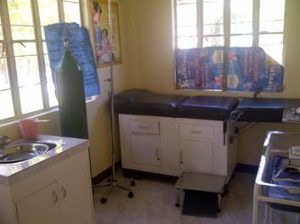NEWS AND UPDATES
Birthing clinics improve rural healthcare access, referrals, disease monitoring

Birthing clinics and health facilities, including those donated by Zuellig Family Foundation, are found to give benefits such as accessibility, early referral of high-risk cases, and better monitoring of diseases in rural communities, according to Professor Ma. Angeles G. Lapeńa and her team of researchers from De La Salle University.
The Zuellig Family Foundation (ZFF), rooted from the Zuellig family’s enterprises in the Philippines, partnered with various rural municipalities in effort to improve leadership and governance in health systems, known as Community Health Partnership Program (CHPP). Under the CHPP, each municipality receives two infrastructure grants to construct birthing facilities in their respective districts.
Investigating the impact of the 52 donated birthing clinics, researchers surveyed health workers and households in selected municipalities in Romblon, Sibuyan Island, Mindoro and Maguindanao.
Findings revealed that the accessibility of the birthing clinics resulted to increased number of prenatal check-ups and deliveries after its construction, as presented by Professor Lapeńa during the 35th anniversary of Social Development Research Center.
Since these clinics also served as permanent offices of community health workers, patients with high-risk cases were earlier referred to other health providers with advanced health facilities. According to health workers, better monitoring of diseases even in the remotest areas was possible because of the accessibility of the clinics.
While more birthing clinics bring various benefits to communities, local government units’ programs and policies are still crucial in maintaining and enhancing these clinics to ensure not just accessibility but also high quality of health services to communities, according to Professor Lapeńa.




